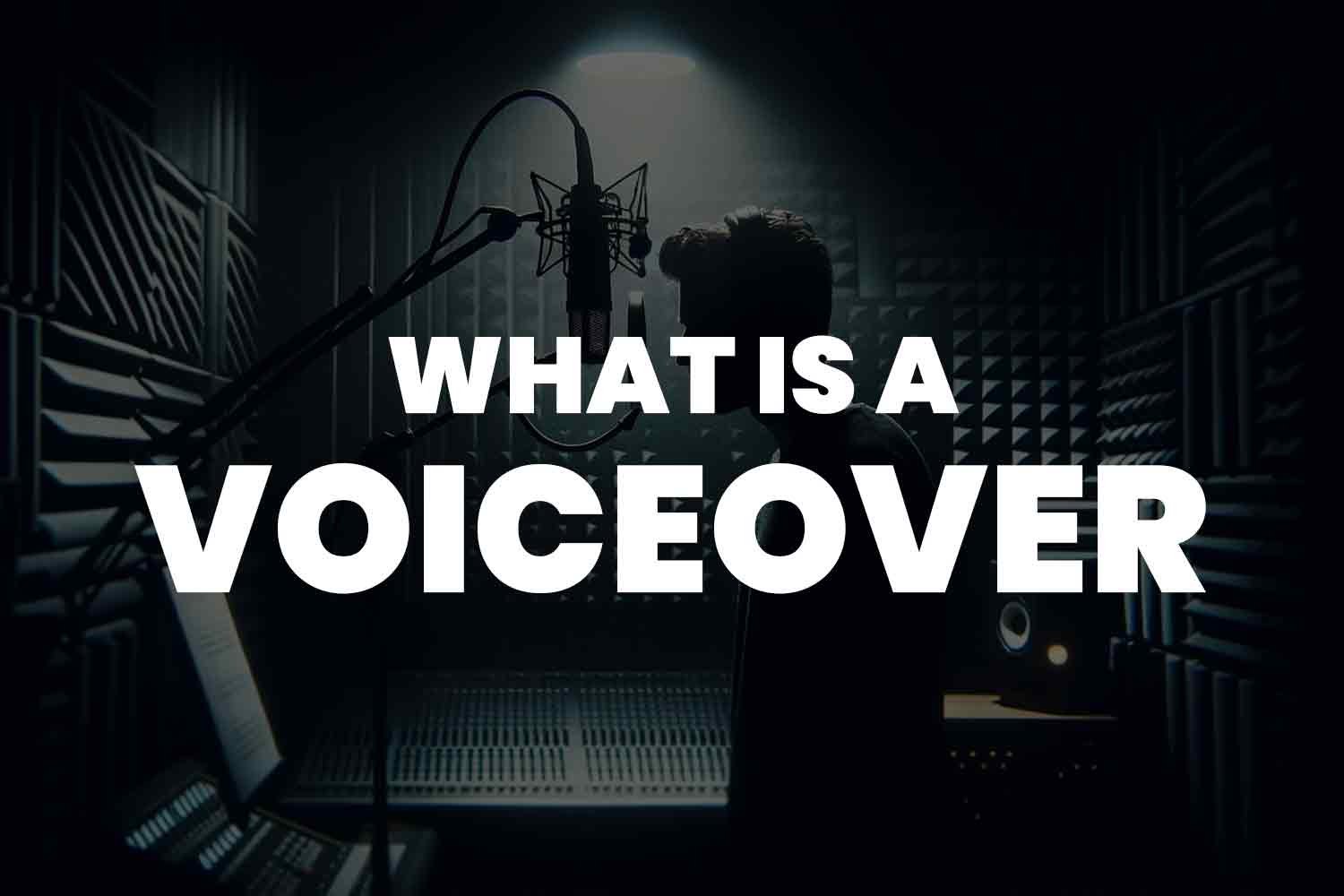What is a VoiceOver? A Complete Guide
Have you ever watched a movie and heard a character speaking but couldn't see them? That's a voiceover! Let's dive into this magical world where voices bring stories to life.
What is VoiceOver?
A voiceover is when we hear a person's voice but don't see them speaking. It's like an invisible storyteller! This happens in animated films, radio dramas, movie trailers, and educational videos.
Who Does Voice Overs?
Voice Actors: These talented folks lend their voices to characters. They could be a professional voice actor or someone just starting.
Voiceover Artists: A fancy name for voice actors, but they do the same fantastic job!
Voice-Over Artists: They do voiceover work, which includes narrating stories, doing off-stage commentary, or helping us understand what's happening on screen.
Where Do They Record?
Most voiceovers are done in a recording studio. It's a quiet room with lots of sound-absorbing foam to keep out background noise like dogs barking. A decent USB microphone and external mic are essential tools here.
The Magic Behind Voice Overs
Choosing the Right Voice Actor
The right voice actor can make a character sound natural or overly excited. It's all about finding the great voice that fits the personality.
Sound Quality Matters
High-quality voiceovers need good sound quality. This means no background noise, just the clear, human voice of the actor.
Editing Software
Once the voice recording is done, editing software ensures every word is pronounced correctly and the audio clarity is top-notch.
The Art of Voice Acting
Voice acting involves acting skills, understanding the target audience, and being able to change your vocal tone.
Have you ever watched a movie and heard a character speaking but couldn't see them? That's a voiceover!
Let's dive into this magical world where voices bring stories to life.
What is VoiceOver?
A voiceover is when we hear a person's voice but don't see them speaking. It's like an invisible storyteller! This happens in animated films, radio dramas, movie trailers, and educational videos.
Who Does Voice Overs?
Voice Actors: These talented folks lend their voices to characters. They could be a professional voice actor or someone just starting.
Voiceover Artists: A fancy name for voice actors, but they do the same fantastic job!
Voice-Over Artists: They do voiceover work, which includes narrating stories, doing off-stage commentary, or helping us understand what's happening on screen.
Where Do They Record?
Most voiceovers are done in a recording studio. It's a quiet room with lots of sound-absorbing foam to keep out background noise like dogs barking. A decent USB microphone and external mic are essential tools here.
The Magic Behind Voice Overs
Choosing the Right Voice Actor
The right voice actor can make a character sound natural or overly excited. It's all about finding the great voice that fits the personality.
Sound Quality Matters
High-quality voiceovers need good sound quality. This means no background noise, just the clear, human voice of the actor.
Editing Software
Once the voice recording is done, editing software ensures every word is pronounced correctly and the audio clarity is top-notch.
The Art of Voice Acting
Voice acting involves acting skills, understanding the target audience, and being able to change your vocal tone.
Types of VoiceOvers
Animated Films: Like Toy Story, a classic example from Walt Disney.
Video Games: Here, voice actors bring characters to life with their voices.
News Reports: Where a professional voiceover artist explains what's going on.
Customer Service Lines: That helpful voice guiding you is a voice-over!
How to Get Started in VoiceOver
Feel Confident in Your Own Voice: Your own voice is unique. Speak slowly and practice different character voices.
Practice and Demo Reel: Record your voice, play with different tones, and create a demo reel to showcase your work.
Invest in Equipment: A decent microphone, some sound-absorbing foam, and a quiet space are a good start.
Learn and Improve: Take courses, learn about audio software, and improve your skills.
The Impact of Voice-Overs
Voiceovers significantly affect how we understand and enjoy content. Whether it's a voiceover narration in instructional videos or an off-screen commentary in a movie, voiceovers add depth and dimension to the existing narrative.
Conclusion
Voiceovers are a powerful production technique that brings life to video content. Whether it's a professional voiceover artist or someone just starting with a good voice and a decent USB microphone, the world of voiceovers is whole of creativity and excitement.
So next time you hear a voice telling a story, remember the art and skill that goes into making those words come alive!
Frequently Asked Questions About VoiceOvers
What Exactly is a VoiceOver?
Imagine you're watching a cartoon. You hear characters speaking, but you don't see anyone. That's a VoiceOver!
It's a production technique where an actor lends their voice to bring life to characters, narrate stories, or provide information without being seen.
Do I Need a Unique Voice to Be a VoiceOver Artist?
Not necessarily! While having a distinct voice can be an advantage, the key is versatility and the ability to convey emotions and narratives effectively.
Whether your voice is deep, quirky, or sounds like the guy next door, there's likely a perfect role for you.
What Equipment Do I Need to Start VoiceOver Work?
To start, you'll need:
A decent USB microphone: This is crucial for clear audio recordings.
Sound absorbing foam: To minimize echo and background noise.
Editing software: For polishing your recordings.
A quiet, dedicated space: To ensure professional sound quality.
Can I Do VoiceOvers for Animated Films?
Absolutely! Animated films are one of the most popular mediums for voiceover work. It requires bringing animated characters to life through your voice, often requiring a range of emotions and vocal tones.
How Important is Audio Clarity in VoiceOvers?
Extremely important! Good sound quality and audio clarity make your voice pleasant and understandable to the audience. It involves clear pronunciation, proper pacing, and no distracting background noises.
Is Voice Acting the Same as VoiceOver Work?
Yes and no. Voice acting is a part of voiceover work that focuses on acting out characters, often requiring diverse vocal ranges and emotional expressions. VoiceOver can also include narration, instructional content, or customer service announcements, which might not require character acting.
Can VoiceOver Work Be Done Remotely?
Yes! Many voiceover artists work from home studios. You can record high-quality voiceovers from anywhere with a good microphone, proper soundproofing, and recording software.
Do I Need Professional Training to Be a VoiceOver Artist?
While professional training can be beneficial, especially for complex roles like character voices in video games or animated films, many successful voiceover artists are self-taught. Practice, feedback, and continuous learning are essential.
How Do I Find VoiceOver Jobs?
Start by creating a demo reel showcasing your range and skills. Then, explore online platforms dedicated to voiceover work, join voice-acting communities, and network within the industry. Social media and voiceover job websites are great places to start.
What is the Role of a Demo Reel?
A demo reel is like your voiceover resume. It showcases your vocal range, different styles (like narrations, character voices, etc.), and sound quality. You'll send it to potential clients or agencies to demonstrate your talent.
How Do I Improve My VoiceOver Skills?
Practice, practice, practice! Listen to and analyze professional voiceovers, take acting or voice classes if possible, and record yourself regularly to monitor your progress. Also, feel free to experiment with different styles and characters.
Can VoiceOvers Be a Full-Time Career?
Yes, many people make a living doing voiceovers. However, like any artistic career, building a client base and a steady work stream can take time. Patience, perseverance, and continuous skill improvement are essential.




























